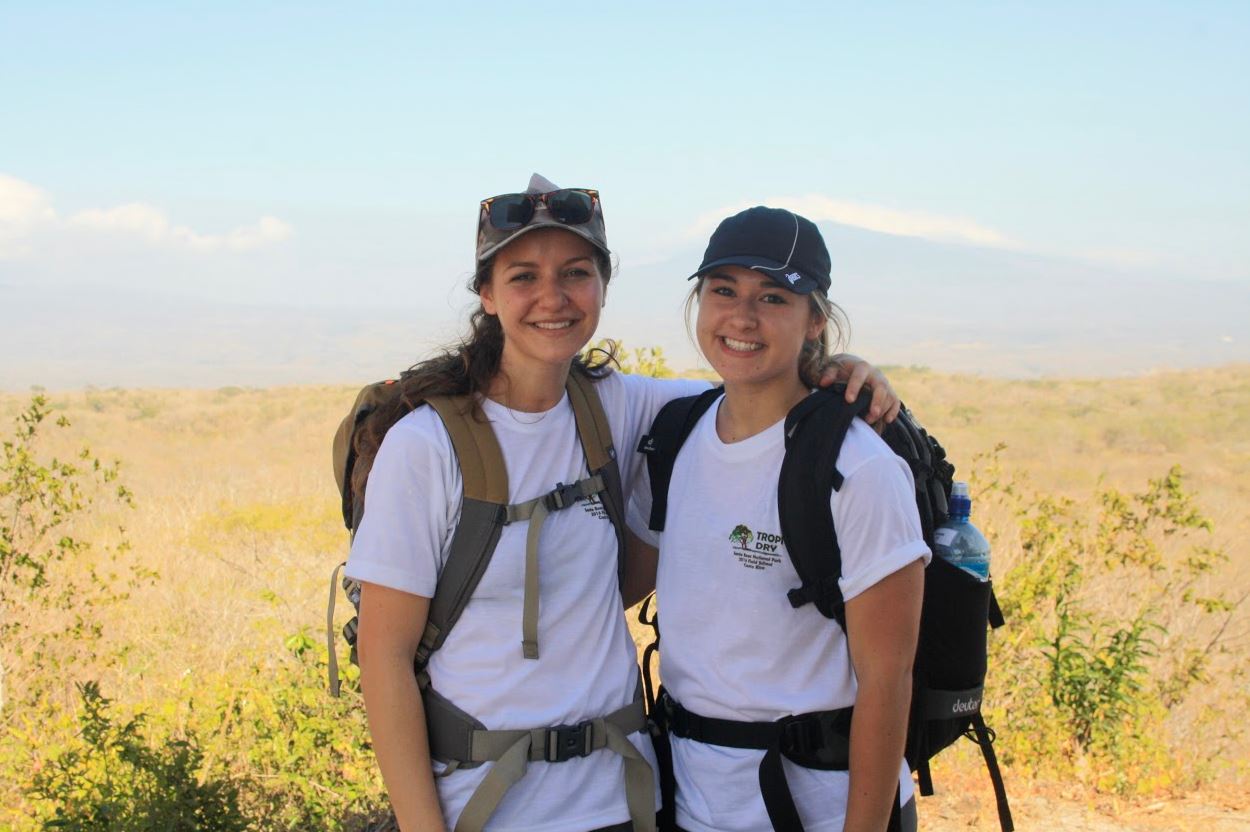
Jessi Steinke and Ericka James, third year Earth and Atmospheric Sciences students, took field school in Costa Rica over Reading Week. (All photos courtesy Jessi Steinke.)
How did you spend your Reading Week this year? Jessi Steinke, Julia Valentina Soares, and Ericka James, were three of the 13 third-year Earth and Atmospheric Sciences students who spent the week at Field School in Costa Rica. Hear what they had to say about their experiences.
Why did the Costa Rica field school experience appeal to you?
Steinke: This was a great opportunity to see how data is collected and get valuable field experience. Also, it's Costa Rica!
Soares: It was very different and for this reason it appealed to me. Most professors do work in Canada or North America. Therefore, when I heard about Costa Rica it really appealed to me as I would get to learn about something different.
James: In past years, this field school has often been in Kananaskis. I'm really glad they decided to hold it in Costa Rica for a couple of years. We all are familiar with landscapes and forests in Alberta and BC, so seeing different types of forests (the tropical dry forests) and biodiversity was great.
What was a highlight of the experience?
Steinke: The biodiversity of Santa Rosa National Park was amazing. We were able to see a number of tropical birds, large groups of monkeys, iguanas, and even a boa constrictor. It was cool to see so many different animals in the wild! It was also a great way to make friends.
Soares: It was just nice to be in a completely different environment and get to do field work there.
James: The highlight for me was probably the wildlife (bird watching in the mornings, night walks to see scorpions/snakes, monkeys in the trees everywhere, frogs in the shower...). We also got two days off at the end to go hike the volcano and go to the beach.
Why would you recommend other students participate in the Costa Rica field school?
Steinke: For students interested in Earth and Atmospheric Science, it's a great way to gain valuable knowledge of fieldwork, data collection, and how research projects operate.
Soares: It is good in that the experience is very different and gives you hands-on experience in the field.
James: I'd recommend it to students because it expanded my horizons of types of forests, studying completely different kinds of biomes and wildlife than what we would have here. It was really important in learning how to direct your own field work instead of following constant instructions as well as learning how to use instruments that lots and lots of companies and researchers use (LIDAR and hemispherical photos). It's also a great opportunity to get to know grad students, researchers, and profs in a really small group. In such a small group, lots of the grad students and profs are looking for students to help them with their research, so it's a great networking opportunity as well.
What are your future plans, and how do you believe that participating in the field school will set you up for future success in school and life?
Steinke: This summer I'll be working as a field assistant collecting data on permafrost in the Taiga Plains area of Northern Alberta and the North West Territories. This field school taught me a range of skills from setting up wireless sensor networks, the use of LiDAR, to the physical logistics of setting up a research plot. These skills will not only help with my job this summer, but with other research opportunities I may be eligible for in the future.
Soares: I will definitely be attending graduate school in the environmental sciences. Both this field school and the second-year field school have so far been the best courses I have ever taken as the earth sciences are such practical degrees that I believe you need a field school to tie in all the concepts learned in class. If I were to donate to the university, I would donate only to field schools. They gave me the practical experience as to how research within the department is done first-hand and has been fundamental in emphasizing the fact that I am happy with my degree and made me want to continue to pursue education in this field.
James: I'd love to do environmental consulting, research, or GIS work in the future, and the experience I got working with LiDAR systems, wireless sensors, and data collection is invaluable. The opportunity to be responsible for our own equipment and data collection allowed us to actually use these instruments, and in a world where technology is still being developed and becoming more prominent in scientific use, the ability to make sense of these systems and the data they produce is such an asset.